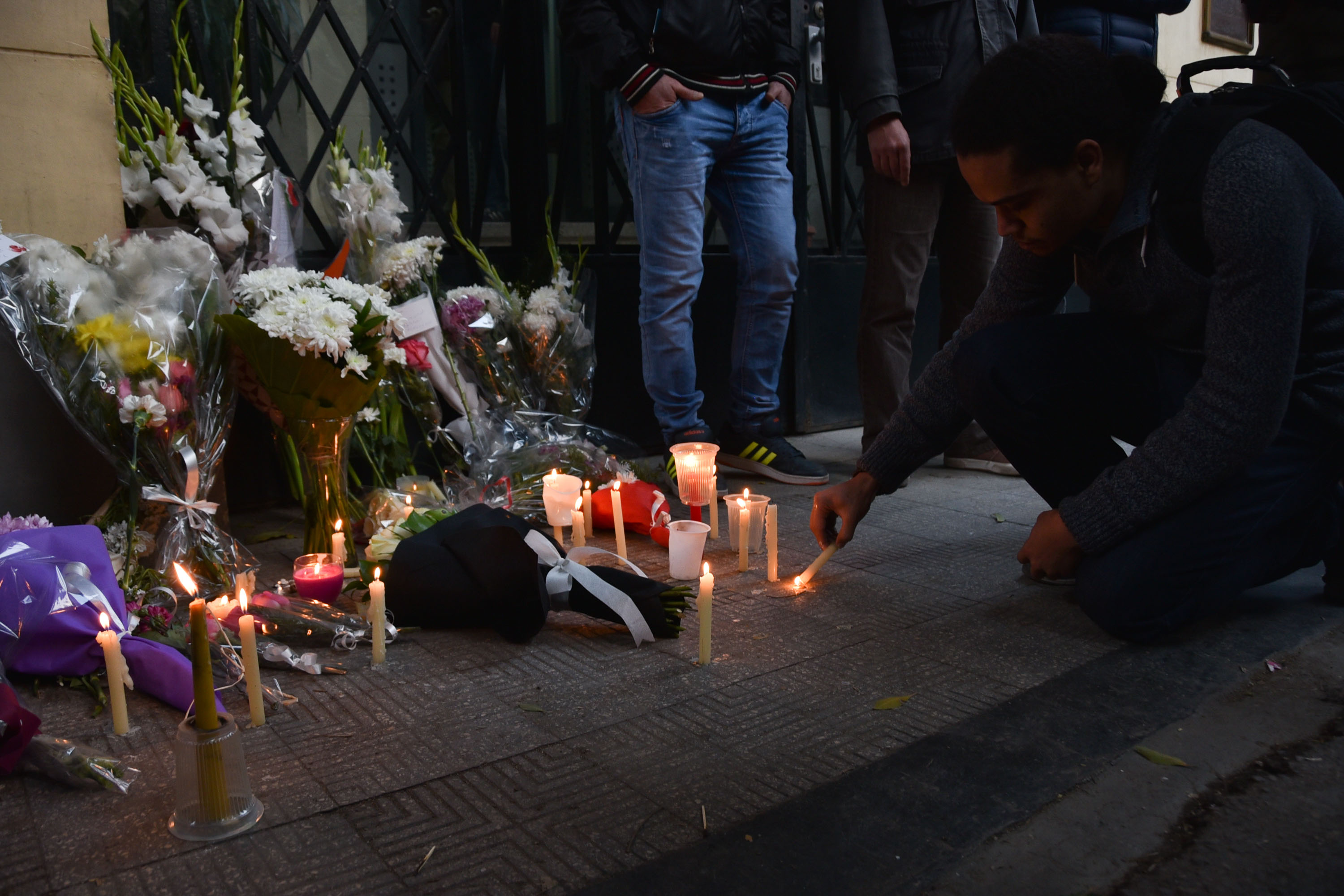Latest NEWS
- Aswat Masriya, the last word
- Roundup of Egypt's press headlines on March 15, 2017
- Roundup of Egypt's press headlines on March 14, 2017
- Former Egyptian President Hosni Mubarak to be released: lawyer
- Roundup of Egypt's press headlines on March 13, 2017
- Egypt's capital set to grow by half a million in 2017
- Egypt's wheat reserves to double with start of harvest -supply min
- Roundup of Egypt's press headlines on March 12, 2017
Outraged Italy demands justice for student slain in Egypt

By Isla Binnie
ROME, Feb 8 (REUTERS) - An outraged Italy demanded on Monday that Egypt catch and punish those responsible for the death of student Giulio Regeni, whose tortured, half-naked corpse was found in a roadside ditch in Cairo last week.
Regeni, a 28-year-old graduate student at Britain's Cambridge University, had been researching independent trade unions in Egypt and had written articles critical of President Abdel Fattah al-Sisi's government.
The incident has strained ties between Rome and Cairo, which has made no arrests so far.
"We want the real perpetrators to be discovered and punished according to the law," Italian Foreign Minister Paolo Gentiloni told La Repubblica newspaper on Monday. He said Italy "will not be satisfied with suppositions" to explain the death.
Cambridge University said it had written to the Egyptian authorities to demand a full investigation into Regeni's death.
An initial autopsy in Egypt showed Regeni had been hit on the back of the head with a sharp instrument, beaten and burnt with cigarettes, according to a senior official at the Cairo public prosecutor's office and a forensic doctor. Both spoke on condition of anonymity.
A second autopsy in Italy "confronted us with something inhuman, something animal", Interior Minister Angelino Alfano told Sky News 24 television on Sunday. "It was like a punch in the stomach and we haven't quite got our breath back yet".
Italian media said the second autopsy ascertained that Regeni's neck had been broken. This has not been officially confirmed.
Italian opposition parties have demanded that Prime Minister Matteo Renzi's government take a tougher stand with Egypt.
"The death of Giulio Regeni, who was tortured to death, is still opaque and shrouded in shadows," said the opposition 5-Star party. "We demand the truth."
On Sunday night, some 2,000 people held a candlelit march in Fiumicello, his hometown in north-east Italy.
"We want a commitment at every level to shed light on what happened to Giulio," mayor Ennio Scridel told the mourners.
Italy has sent members of its special operations police force to Cairo to participate in the investigation.
Tensions had been high in Egypt at the time of Regeni's disappearance, which coincided with the fifth anniversary of an uprising that toppled former president Hosni Mubarak.
Rights groups say police often detain Egyptians on scanty evidence and that they are beaten or coerced. Scores have disappeared since 2013, the groups say. Egypt denies allegations of police brutality.
The left-wing Italian newspaper Il Manifesto which published Regeni's articles said he had used a pseudonym because he feared for his safety. He did not mention specific threats.
(Additional reporting by Ahmed Mohamed Hassan in Cairo, Editing by Philip Pullella and Gareth Jones)










